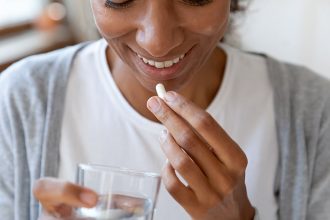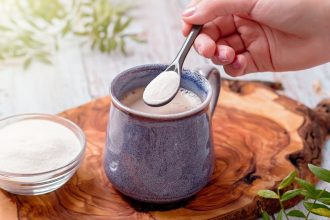You enjoy the comforting richness of your morning coffee and the boost of energy it brings, but unfortunately, your digestive system disagrees. Why does coffee sometimes lead to stomach discomfort, and what can be done to alleviate the pain?
Below are the possible causes of coffee-induced stomach discomfort, along with suggestions to manage or avoid coffee-related stomach cramps.
Sensitivity to Caffeine
Caffeine, a natural stimulant present in coffee beans, is renowned for its ability to provide a much-needed energy boost post-coffee, as emphasized by the U.S. National Library of Medicine (NLM). However, it might also be the culprit behind the sharp stomach pain experienced after consuming coffee—a phenomenon commonly referred to as caffeine-induced stomach pain.
Bonnie Taub-Dix, RDN, a dietitian, and author, explains that caffeine serves as a gastrointestinal stimulant. Its effects vary from person to person depending on factors such as body size and diet, as highlighted by the Cleveland Clinic. Some individuals exhibit increased sensitivity to caffeine, leading to exacerbated gastrointestinal discomfort.
While consuming up to 400 milligrams of caffeine per day (roughly equivalent to 4 cups of brewed coffee) typically does not result in adverse effects, according to the Cleveland Clinic, those sensitive to caffeine should consider limiting their daily intake to a lower dosage to avoid stomach discomfort.
Acidity
In addition to caffeine, coffee contains various acids like chlorogenic acids and trigonelline, which can contribute to stomach discomfort by stimulating increased stomach acid production. Research published in June 2014 in Molecular Nutrition & Food Research highlights the potential of these acids to exacerbate abdominal pain.
For individuals with underlying conditions such as reflux or GERD, the effects may be even more pronounced. According to Bonnie Taub-Dix, RDN, caffeinated beverages like coffee can worsen symptoms in these cases.
Specifically, pain experienced in the right or left side after coffee consumption could indicate various issues, as outlined by the Cleveland Clinic:
Upper left abdominal pain may be linked to pancreas or kidney problems, gastritis, stomach ulcers, or bile reflux. Upper right abdominal pain could signal gallstones, duodenal ulcers, kidney problems, or large bowel obstruction. Lower left abdominal pain may be indicative of diverticulitis. Lower right abdominal pain might suggest appendix problems. If you experience persistent pain in any of these areas after drinking coffee, consulting a doctor is advisable to determine if an underlying condition requires attention.










